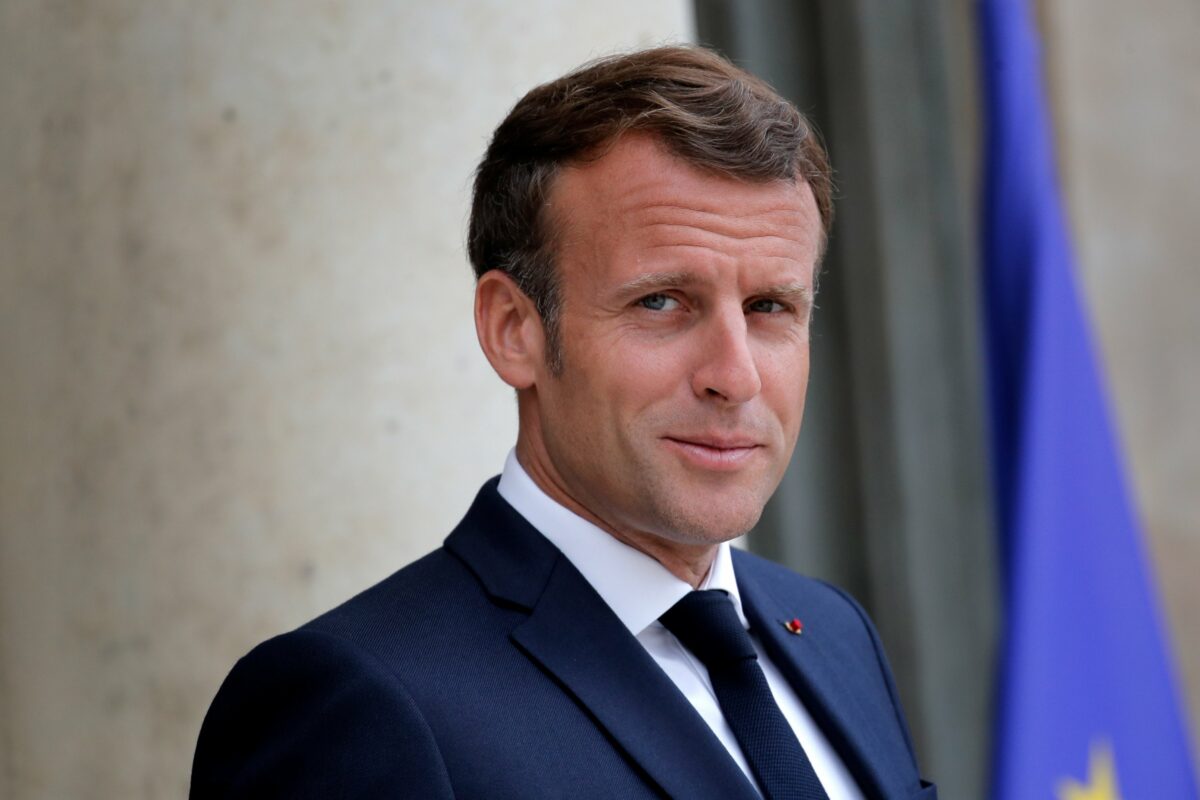To understand French President Emmanuel Macron’s current escalating crisis with the Muslim world, we need to consider the larger picture. Macron has wrestled with France’s six million Muslims from the very start.
A few months after his May 2017 victory, he indicated that tightening state control of Islam was a top priory for him. “What I’d like to get done in the first half of 2018 is set down markers on the entire way in which Islam is organised in France,” he declared in a newspaper interview on 11 February 2018. With this, Macron set out to succeed where his predecessors failed: an attempt to create a brand of Islam unique to France.
In his incoherent attempt to force-fit Islam into France’s religiophobic version of secularism called laïcité that was ramped up in the wake of the Charlie Hebdo attack in 2015, Macron gradually adopted a strong anti-Islam rhetoric that turned “secular” hate for Islam into a normal part of his government’s speeches and his country’s media. He spoke about creating “enlightened French Islam” that would unshackle Islam from its “crisis” and said he wants to “reduce the influence of Arab countries” which “prevents French Islam from returning to modernity”.
A government that doesn’t respect the values of its Muslim citizens kept nagging Muslims to respect French values. Public figures, who are intolerant of Islam, consistently harass Muslims to tolerate insults towards their faith in the name of freedom of expression. The result of this is, as can be expected, near legitimisation of stigmatisation of Muslims and institutionalisation of discrimination against Muslims.
It’s in this climate that Macron’s comments that outraged the Muslim world were made. On 2 October, he gave an hour-long speech in which he defended the “right” to blaspheme in an affirmation of the Charlie Hebdo caricatures insulting Islam and declared that “Islam is a religion that is in crisis all over the world”. He stated that he’d introduce a new legislation that will empower him to dissolve any religious groups that “attack the dignity of people, using psychological or physical pressure, and break the values of France.” The proposed law would replace Imams trained in Arab countries with those trained in France, and disentangle French Islam from foreign finance and influence. In effect, Macron wishes to transform Islam in France into the Islam of France.
In fairness to him, the provocative speech contained balancing paragraphs about the state as a guarantor of religious freedom, the economic marginalisation of Muslims and his country’s nasty colonial legacy. But the nuance was lost in the inflammatory phrases. And amid the backlash from Muslim majority countries, including most notably Turkey, the horrific murder of Samuel Paty further complicated the equation.
Paty, a history and geography teacher in a quiet Paris suburb, was killed on 16 October by an 18-year French Muslim of Chechen origins after he showed the Charlie Hebdo caricatures of Prophet Muhammad (pbuh) in his class on freedom of expression. But his murder was immediately absorbed into the wider rhetoric about Islam, with a crackdown on more than 50 Muslim organizations, including anti-racist organisations such as the Collective Against Islamophobia in France (CCIF), in order to send the message that “enemies of the republic cannot expect a minute’s respite”.
The backlash was sharp and immediate and transcended the Muslim world’s extremely diverse, sometimes conflicting, sectarian, cultural and political landscape. The front page of an Iranian newspaper labelled Macron the “Demon of Paris”; a leader writer in Bangladesh called him a leader who “worships Satan”; and Riyadh rejected “any attempt to link Islam with terrorism” and condemned “the offensive cartoons of the Prophet”. As anti-French messages and calls to boycott French goods trended on social media, protests at which the French flag and Macron’s photos were burnt, were held in many countries.
The difficulty that many in the West, including Macron, don’t understand in their conversations around Islam and freedom of expression, is that to the vast majority of Muslims, Prophet Muhammad (pbuh) and all of the prophets are not mere sacred figures: they are revered and loved more than one’s own family, and more than one’s own life. Prophet Muhammad (pbuh) is an integral part of the Muslim identity. Thus, insulting the Prophet is insulting every single Muslim in the most painful way possible. It’s inexpressibly offensive.
When Macron speaks of his project of transforming Islam to conform to French values, the first thing that comes to the Muslim mind is his country’s colonial policy of assimilation that left devastating cultural legacies in Arab-Muslim countries. What does he mean by “enlightening” Islam? If compelling Muslim children to study offensive cartoons of their beloved Prophet isn’t secular enough, does he intend to legislate forcing them to draw the cartoons with their hands in the name of becoming “true French citizens”? Will the so-called French Imams be required to encourage those who draw such caricatures?
The Macrons of this world speak of freedom of expression in absolute terms even though the French system – as others around the world – doesn’t guarantee the unrestricted freedom of speech that they like to portray when it comes to Muslims. For example, any speech condoning terrorism is a crime in France, and denying the Holocaust is unlawful. It’s one thing to permit statements vilifying an entire class of people, as insults of the Prophet do – but France goes further, and actively encourages it, in contradiction of the right of freedom of religion – including for Muslims – equally enshrined in the French constitution. It’s one thing to say freedom of expression is a good thing; it is quite different to say that gratuitous insult should therefore be promoted. One is good for democracy, the other is deeply damaging to society.
The vast majority of Muslims around the world share one fundamental thing in common with Macron: they do not condone terrorism in the name of Islam. Many of them have been working assiduously to wrestle their faith from a tiny minority that peddles a perverted interpretation to commit horrific acts of violence whose victims are mainly Muslims. Macron would do well to work with the Muslims inspired by their faith to fight terrorism than do or say things that make their difficult job impossible.

 Join Daily Trust WhatsApp Community For Quick Access To News and Happenings Around You.
Join Daily Trust WhatsApp Community For Quick Access To News and Happenings Around You.


